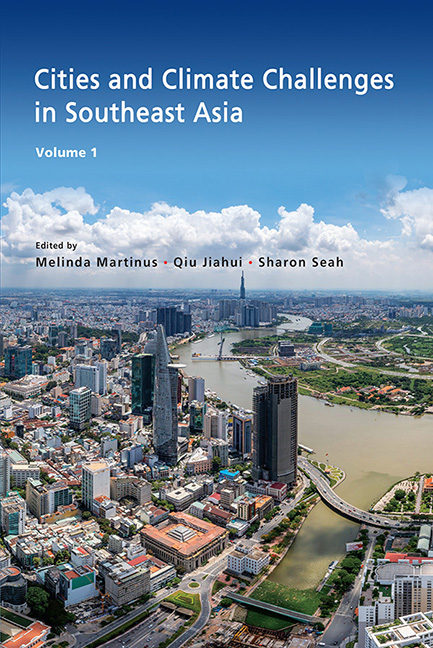12 - The Role of Official Development Assistance (ODA) for Advancing Sustainable Climate Adaptation: A Case Study of Japanese ODA in Vietnam
Published online by Cambridge University Press: 09 January 2024
Summary
Summary:
■ As the assistance requests for climate adaptation increase, donor-funded projects’ approaches will be essential to ensure sustainable and resilient communities.
■ Japan’s ODA strategy shifted from the “quantity” to “quality” of projects in the early 2000s to increase the competitiveness of Japanese infrastructure and expertise worldwide. But the inward-looking nature of Japan’s ODA which emphasizes priority on Japan’s economic growth is hampering the introduction of climate-progressive approaches.
■ Japan’s recent policy change towards infrastructure system export pushes Japan’s Official Development Assistance (ODA) strategy to provide more technical and infrastructure-based projects in developing countries.
■ Integrating Ecosystem-based Adaptation (EbA) in Japanese ODA projects will not only ensure the connection between the activities in biodiversity conservation and climate change, but also strengthen the outcomes of the assistance projects to build a sustainable and resilient society.
INTRODUCTION
As the global average temperature increases, natural disasters occur more frequently and intensely (IPCC 2021). In order to mitigate such negative impacts from global warming, it is essential to have appropriate and sustainable adaptation measures. How then are the adaptation measures and approaches determined, particularly in donor-funded assistance projects?
Japan, as one of the largest bilateral donors among the Organization for Economic Cooperation and Development (OECD) Development Assistance Committee (DAC) countries, has been playing an important and influential role in aiding developing countries since it joined the Colombo plan in 1954. As a strategic international assistance policy, the first Official Development Assistance (ODA) Charter was enacted in 1992, and it was further revised in 2003. The ODA Charter was again updated and revised as the Development Cooperation Charter in November 2015.
Globally, Japan continues to demonstrate its commitment to share its infrastructure capabilities. This commitment was further advanced by the former Prime Minister Shinzo Abe’s flagship assistance, the Partnership for Quality Infrastructure: Investment for Asia’s Future. Under such an initiative, Japan committed to provide US$110 billion in infrastructure assistance for Asian countries, including ASEAN. Japan has long been praised on its technical capabilities on infrastructure projects, but as the global community is increasingly concerned about climate change impacts on vulnerable communities in developing countries, it is critical for Japan to revisit the ODA Charter and its principles in incorporating climate change and cross-cutting environmental issues, in particular the climate adaptation aspect.
- Type
- Chapter
- Information
- Cities and Climate Challenges in Southeast Asia , pp. 174 - 192Publisher: ISEAS–Yusof Ishak InstitutePrint publication year: 2023



